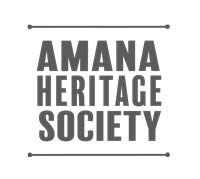The Amana Heritage Museum collections are comprised of approximately 12,000 objects and 10,000 archival pieces. The collections are housed in three historic, communal-era buildings. The collection policy of the museum limits collection to items that pertain to the history of Amana and its associated religious group (The Community of True Inspiration) in Germany and America. The period of the collections covers ca. 1700 to the present, with emphasis on the communal period of Amana history (1855-1932). Many of the items are unique. The collection is an important resource for studies of American communal societies and German/American religion and culture.
The collections of the Amana Heritage Museum have been formed primarily through donations from the community. The museum was established in 1969 in response to a growing community sentiment that Amana’s heritage should be preserved for the community and its descendants and its story told to the increasing numbers of tourist visitors. At its inception, the types of exhibits required were determined and the public solicited for the necessary objects. The museum has since become the collection point for all types of artifacts and documents that relate to Amana. It continues to receive donations of objects from the community and often solicits specific items to address recognized weaknesses in the collections. The museum’s collections are the largest and best organized source for the history of the Amana community both in America and Germany. The artifact collection represents the material culture of communal and post-communal Amana, and the archives contain the essential and fundamental documents that trace the community’s development. The museum collections are significant for those scholars and researchers interested in American communal societies, German immigration, United States religious history, and German radical pietism. The collections are also an important source for many specialized researchers who are interested in–for example–furniture, clothing, quilts, calico, woolens and baskets.






